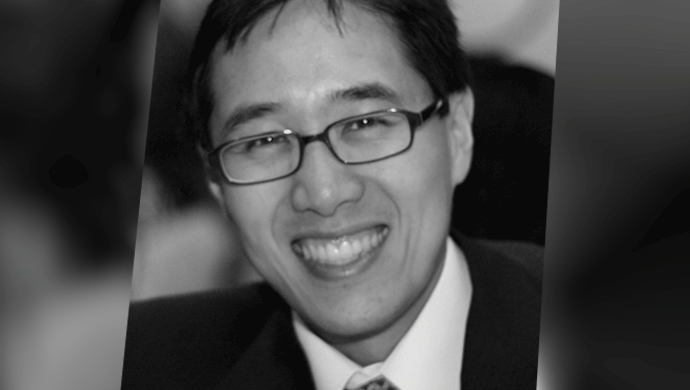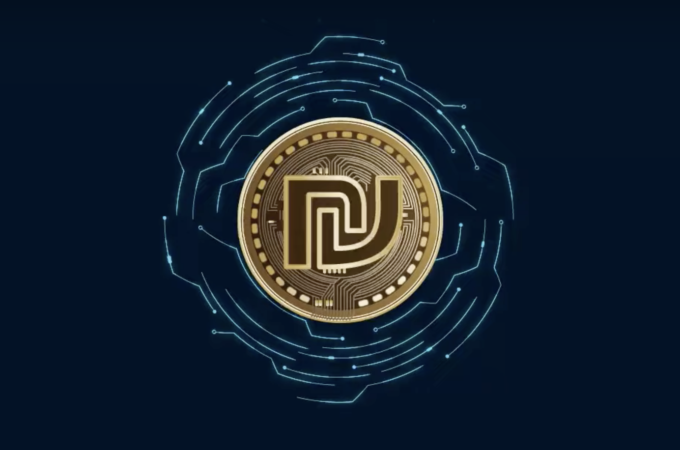
How Fintech will revolutionise finance in the next decade: The Disruptive Group’s Huy Nguyen Trieu
By Isabel Audrey Lim for e27
Huy is currently the CEO of The Disruptive Group, a business builder and advisory firm in finance. The firm aims to build and help the next generation of large-scale financial companies by combining a good understanding of financial services and technology disruption.
Prior to founding The Disruptive Group, Huy has navigated between startups and large organisations. He founded Ukibi – a precursor to Linkedin – in 1999. After five intense years, he joined international banks where he built high-growth businesses for over a decade, culminating in his last position as Managing Director at Citi.
In addition to his day job in capital markets, Huy has been very involved in the development of Fintech and is identified as one of the thought leaders in this space. He was recognised as one of the “10 Influencers in London Fintech you need to know” by BoardStudios.
Apart from writing his personal blog, Disruptive Finance, he is the Fintech Resident Expert at Oxford and a board member of Fintech Hong Kong.
1. Could you share with us your experiences and motivations behind launching The Disruptive Group?
The Disruptive Group was shaped by my experiences over the last eighteen years. I’ve worked in very large international banks but have also been very involved in the startup scene as a mentor, investor as well as a startup CEO.
Over the last few years, I have analysed and documented the changes happening in the finance industry through my blog. I’ve also seen some amazing projects coming from the MBA students at Oxford and from the entrepreneurs I mentor. It has become obvious that finance will be radically different in the next ten years and this change is happening right now.
Despite holding a good position at Citi in London, I really felt the need to be an actor in the transformation of financial services. Thus, The Disruptive Group was launched to build and help build the next generation of large-scale financial companies.
It might seem very abstract, but at the core, we build businesses in finance. I take all my knowledge of financial services and combine it with my experience in technology. With a very tight network of entrepreneurs, investors and technologists, we may hopefully create some interesting, new large-scale businesses in finance.
2. We understand that you’ve always had a passion for entrepreneurship. How would you best describe the experience of embarking on this entrepreneurial journey given your background in engineering?
I feel that entrepreneurship has always been a part of who I really am. I also feel that we exist in a world where more and more people will become entrepreneurs – which should be encouraged. Being an engineer did not particularly help with being an entrepreneur. What really helped me in my entrepreneurial journey was MIT. It was such a vibrant environment and the risks somehow seemed so much lower when everyone around you was an entrepreneur.
Having worked in very large organisations, I would say that you don’t need to be in a startup to be an entrepreneur. If you think like one, you could do very well in large organisations too. Be an ‘intrapreneur’ and help build great businesses within large companies. In some cases, it could be even easier than with your own startup because you would benefit from all the resources of a large company.
3. You mentioned that you are a strong advocate for the potential of Fintech. Could you elaborate further on your views?
In 1990, I co-founded Ukibi, which was essentially Linkedin, but five years before Linkedin. Despite having great investors, people and a superb product, it wasn’t enough to get significant traction. This experience taught me the importance of timing. Over the last few years, I’ve applied this approach to finance and it is very clear that finance is being revolutionised because of technology. Although we are only at the beginning, there have been incredible results. For example, Zhong An sold online insurance to more than 300 million people in two years. Twenty percent of the US adult population uses Credit Karma – a company that had no clients five years back.
In addition to innovative startups, we will start to see some real transformations in finance. The whole value chain will be transformed and there will be new entrants. At the same time, this will be a great way to bring finance to those who couldn’t access it – both in the West and in emerging markets.
Finally, we will start to see whole new services in which we never imagined. It will be much more than bringing new technology to old finance. It will be about creating new ways to manage finance – in exactly the same way that Facebook was not just a mere evolution of existing services.
4. Having been involved in Fintech across Europe and Asia, how would you access the potential of Fintech across these markets?
I would say that there is a more mature ecosystem in Europe today – especially London. That’s because it started earlier, but also because you have a very established financial capital in London that became a de facto Fintech capital for Europe. Hence, there is definitely a lot of projects, ideas and emulation happening in Europe. However, the financial infrastructure is also very mature, meaning that startups have to compete with existing products coming from very large companies which is not easy.
On the other hand, the ecosystem is less developed in Asia although it is catching up rapidly. Because the financial infrastructure is less developed, there is much more opportunity to offer new financial products. That’s why we have amazing successes such as Alibaba in Asia.
One of the main challenges in Asia would be the heterogeneity of the markets, especially from a regulatory standpoint. Today, in Europe and the USA, you could access a large market without having to be regulated on a case-by-case basis. In Asia, there isn’t a common regulatory framework yet. I think this would help a lot for the development of Fintech.
5. Vietnam’s Fintech industry is still in its early stages. How would you evaluate Vietnam’s Fintech potential and how does it compare to the international scene?
Despite being in its early stages, Vietnam has huge potential. Only a third of the population has a bank account, but on average, people have more than one mobile phone each! So there is definitely great opportunities to build Fintech in Vietnam. There have been some very good traction in Vietnam. For example, we look at the case of Timo and Momo. That should hopefully attract more and more entrepreneurs to that space.
The examples of London and Singapore show that there are a few keys to building a successful Fintech momentum. This includes the ecosystem, talents, money, government and regulations.
Of course, not all countries are in the same position as the UK or Singapore, but a lot can be done to build a thriving ecosystem for new financial services . I don’t know enough about Vietnam to properly compare, but I am definitely looking forward to knowing more at Echelon.
–
Huy is one of the high-profile speakers presenting at Echelon Vietnam 2016 on the 18th – 19th November. Catch him at the Future Stage. Don’t miss your chance to meet Huy and other key personalities in the tech ecosystem. Grab your tickets here!
First appeared at e27





